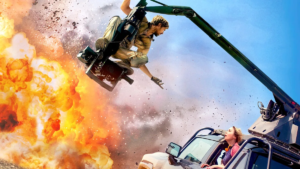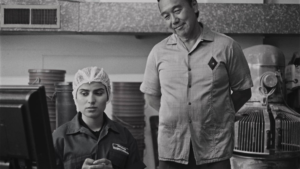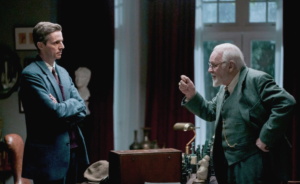Reviewed by GREG KING
Documentary
Directors: Waad Al-Kateab and Edward Watts.

“We never thought the world would let this happen,” cries filmmaker Waad Al-Kateab; this is a despairing cry for help from the world community who seem to have ignored much of the injustice and atrocities that have been occurring in the war torn Syrian city of Aleppo since 2012.
This Oscar nominated documentary is a brutally honest, searing and harrowing yet personal look at the horrors of the Syrian war, largely seen from a female perspective.
In 2012 when the Arab Spring reached Syria, Waad Al-Kateab was an 18-year old student studying business at Aleppo University. Students began protesting against the corrupt and oppressive regime of President Bashar Al-Asa ad, whose family had ruled Syria for decades. The protests escalated into full scale war between the rebels who wanted freedom and the government forces which were backed by Russia.
Waad had begun filming on her mobile phone but soon graduated to video camera. She filmed for five years from 2012 to 2016 capturing some graphic images of the uprising in Aleppo. She documented the hellish daily life in the war-torn city of Aleppo.
Waad met heroic young doctor and activist Hamza, who had set up a make-shift hospital which treated the wounded. ISIS often targeted the hospitals, and the floors literally ran red with the blood of children and innocent victims who were collateral damage in the conflict. Conditions were unsanitary as there was no water, and food was in short supply. Waad married Hamza and the couple had a daughter, named Sama. This is a deeply personal film and a love letter to her daughter.
Waad decided that she would film everything that was happening in Aleppo – the daily bombings, the bloody and broken bodies, the grief stricken wailing of parents, the ruined city – as a way of explaining to her daughter why she and Hamza remained in the city rather than flee to safety. The couple eventually left Syria in 2016 and temporarily found refuge in Turkey.
But while capturing the darker nature and the horrors of war, Al-Kateab also captures the resilience, strength and defiance of the Syrian people, and there are scenes of warmth, hope and humanity amongst the devastation and destruction. Her sparse voice over narration is often accompanied by the sound of explosions and machine guns in the distance. Waad captures some profoundly disturbing images through her unflinching lens. Some of the footage is quite graphic and disturbing and distressing to watch. Some scenes are shot in jerky hand-held camera mode, especially as Waad and the hospital staff race to the basement to shelter from the bombardment, which lends an immediacy and urgency to the material.
There is a wealth of raw material captured by Waad and the footage has been shaped by her and her co-director, Emmy award winning filmmaker Edward Watts, who hails from a background in television documentary and who is making his feature documentary debut here. The editing from Chloe Lambourne and Simon McMahon also helps bring clarity to the material.
★★★★



